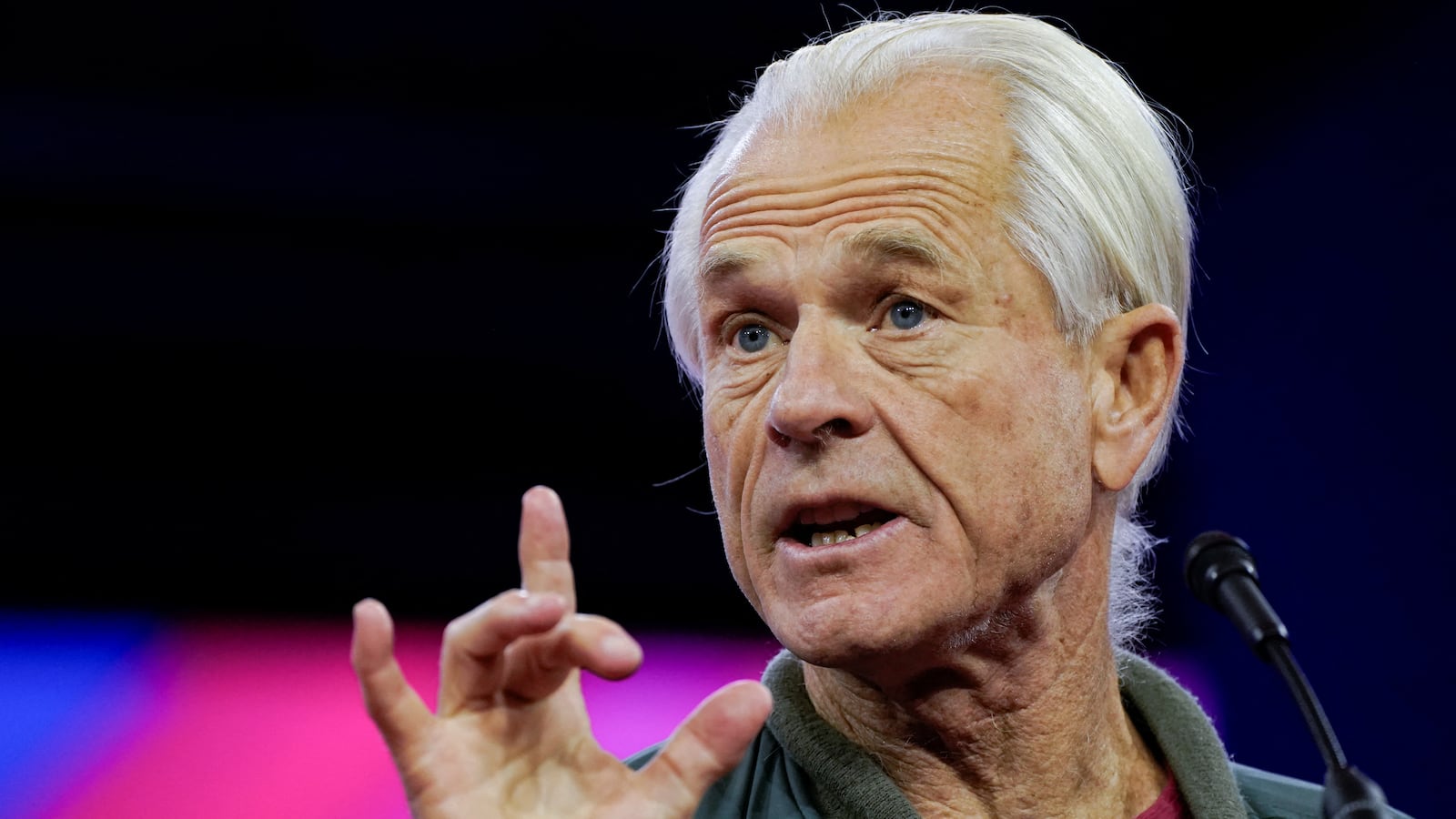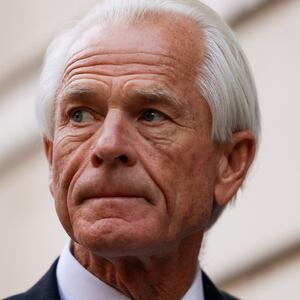Peter Navarro had his last-gasp request to stave off prison time rejected by a federal appeals court on Thursday, placing the former Donald Trump aide one step closer to serving time for defying a subpoena from the Jan. 6 select committee.
A three-judge panel ruled unanimously, writing in an order that Navarro failed to present “substantial questions of law” that might result in his conviction being overturned.
Navarro had been hoping to avoid prison time while he appealed his contempt of Congress conviction from January. Thursday’s ruling means he must surrender to a federal prison in Miami on Tuesday and spend four months behind bars, barring a last-second intervention by the Supreme Court.
Navarro has long attested he was given executive privilege by Trump that meant he wasn’t legally required to heed a Congressional subpoena asking him to testify and hand over documents about the Capitol attack.
U.S. District Judge Amit Mehta rejected that argument in January, however, noting that Navarro had no evidence Trump ever doled out executive privilege to him.
The appeals court also noted Navarro’s lack of evidence for his claim, saying of presidential immunity, “That did not happen here.”
In a two-page order, the appeals court added that, even had immunity been given by Trump, Navarro still would have been required to comply with the Jan. 6 committee’s request because of its “imperative need for evidence.”
In viral press conferences outside his trial in January, Navarro, while talking over protesters who jeered him incessantly, told reporters he expected his appeal to reach the Supreme Court.
With just days to go before he has to turn surrender to prison, the high court is Navarro’s last hope to avoid time in the clink. If the Supreme Court weighed in on the matter, The Washington Post reported it’d be “extremely unusual” given the circumstances.
Navarro is the second former Trump adviser to be convicted on federal charges for defying the Jan. 6 committee. The first, Steve Bannon, was convicted in a 2022 jury trial and sentenced to four months behind bars, but a judge allowed him to remain out of prison as his appeal plays out—the exact circumstances Navarro was hoping to receive.






